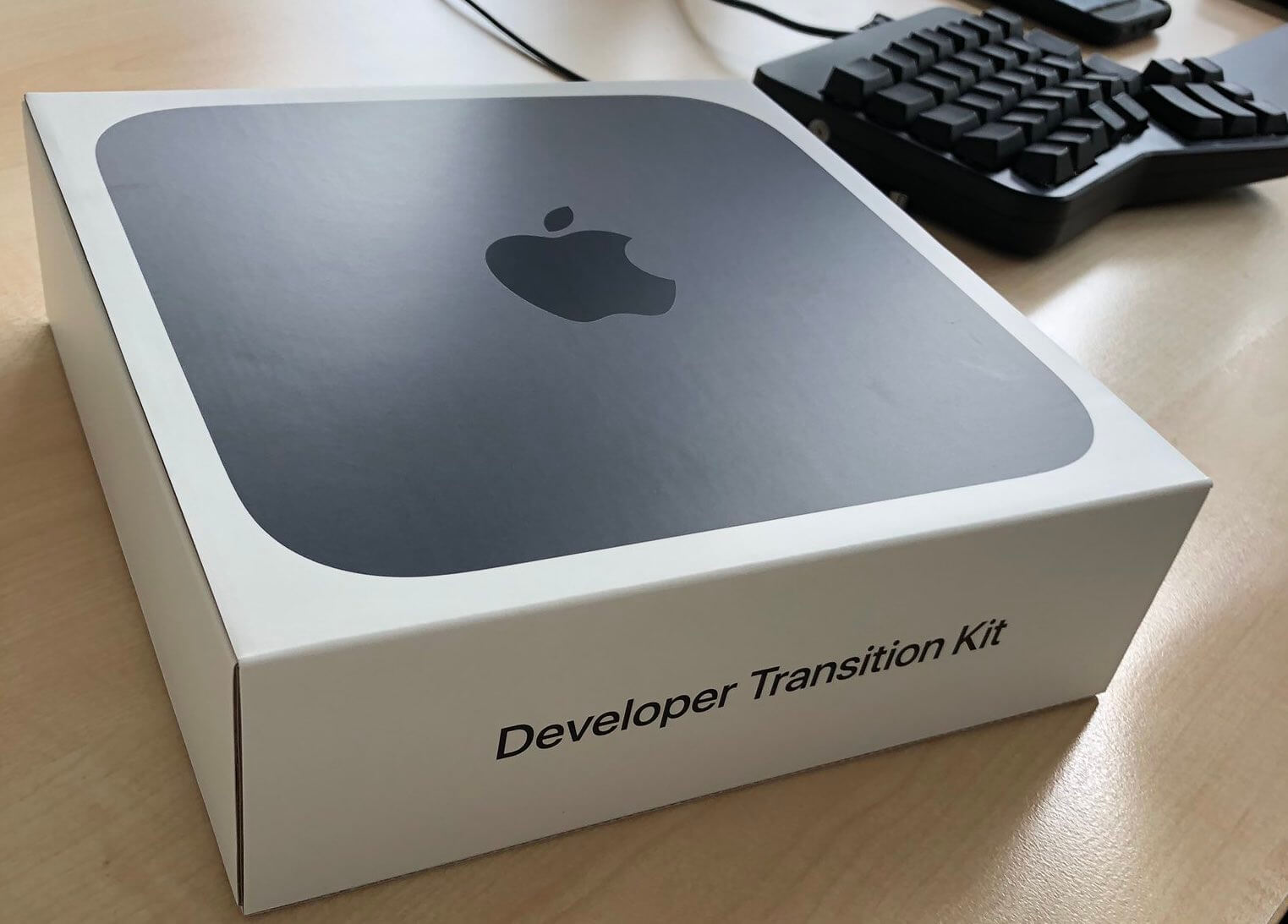
Something I am looking forward to: Apple’s first ARM-based custom silicon for Mac is not here yet, but more and more it looks like it will come with a bang. The developer transition kits that Apple is shipping use a chip designed for iPads and show decent performance compared to other solutions, even when running x86_64 code under emulation. The first official processor used in Apple Silicon Macs is expected to outperform it by a wide margin.
Apple unveiled plans for the transition from Macs to its own processors based on the ARM architecture during WWDC 2020 last week. While the transition comes as great news for ARM and reignites dreams of a future where a MacBook could last a full day on battery power, there was no definitive word on the performance of Apple’s upcoming processors.
The company has started shipping development kits that look like Mac minis, but inside they come with an A12Z SoC along with 16GB of RAM and a 512GB SSD. The first benchmarks are inside, and it seems Apple’s first ARM-based Mac platform is capable of averaging 811 points in the single-core Geekbench test and 2,781 in the multi-core test. It should be noted that these results were obtained using Apple’s Rosetta 2 translation / virtualization solution, making it more of a representation of how apps would work when they weren’t ported to run natively on the new platform.

While only a rough comparison, Microsoft’s Surface Pro X with Qualcomm’s Snapdragon SQ1-based custom silicon scores an average of 726 points in the Geekbench 5 single-core test and 2,831 points in the multi-core test. On first impression, it would appear that the A12Z can only outperform the Snapdragon solution in the single-core test. However, testing of Surface Pro X was done using a native ARM version of Geekbench 5, meaning that Apple’s A12Z running at 2.4 GHz and an emulated version of the benchmark almost outperformed Microsoft’s custom chip. , which runs at 3 GHz in native software.
Compared to the iPad Pro 2018, which features the A12X Bionic processor that served as the foundation for the A12Z (the latter has an additional GPU core), it performs rather poorly. But in this case, the iPad Pro is running a native Geekbench ARM build, which is how it is capable of achieving ~ 1,100 points in the single-core test and 4,600 in the multi-core test. These results are similar to those of the A12Z-equipped iPad update earlier this year.
The MacBook Air 2020 equipped with a dual-core Intel Core i3-1000NG4 CPU scores around 1,005 points in the Geekbench single-core test and 2,016 points in the multi-core test. When equipped with the more powerful quad-core Intel Core i7-1060NG7, the results jump to 1,133 points and 2,990 points, respectively. Meanwhile, a Windows desktop PC with a Ryzen 5 3600 processor scores 1,254 points in Geekbench’s single-core test and 7,497 in multiple cores. Take that to a 3950X CPU and the single-core score barely budges, while the multi-core climbs through the roof at around 15,000 points. That is to say, Geekbench is far from being a definitive test.

Overall, these results aren’t all that surprising, and it’s not what Apple intends to ship on its first Apple Silicon Mac later this year. That device most likely has a much more robust 5nm or 7nm chip based on the A14 SoC that will power next year’s iPhone 12 and iPad.
The benchmark scores for Apple’s ARM-based developer transition kit don’t tell the whole story, but they offer some interesting insights into the impact of Rosetta 2 on performance. It appears that running x86_64 applications that have not been ported to ARM64 will lead to a performance impact of between 25 and 40 percent. Apple has planned a two-year transition to ARM, and this will be an important factor to consider for developers of popular applications.
It will also be interesting to see which Mac is the first to move to Apple’s silicon. Some speculate that it will be the MacBook Air, which is a conventional laptop offering. Others, including Ming Chi-Kuo, believe the 13 “MacBook Pro will be Apple’s first choice, followed by a redesigned 24-inch iMac next year.